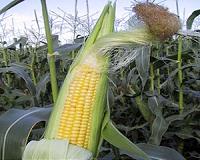 |
Leeds UK (SPX) Oct 11, 2010 Large-scale crop failures like the one that caused the recent Russian wheat crisis are likely to become more common under climate change due to an increased frequency of extreme weather events, a new study shows. However, the worst effects of these events on agriculture could be mitigated by improved farming and the development of new crops, according to the research by the University of Leeds, the Met Office Hadley Centre and University of Exeter. The unpredictability of the weather is one of the biggest challenges faced by farmers struggling to adapt to a changing climate. Some areas of the world are becoming hotter and drier, and more intense monsoon rains carry a risk of flooding and crop damage. A summer of drought and wildfires has dramatically hit harvests across Russia this year, leading the government to place a ban on wheat exports. This led to a dramatic rise prices on the international commodity markets which is likely to have a knock-on effect in higher prices of consumer goods. But the authors of the new study, which appears in Environmental Research Letters, argue that adaptation to climate change be possible through a combination of new crops that are more tolerant to heat and water stress, and socio-economic measures such as greater investment. Lead author Dr Andy Challinor, from the University of Leeds School of Earth and Environment, said: "Due to the importance of international trade crop failure is an issue that affects everyone on the planet, not just those in crop-growing regions. "More extreme weather events are expected to occur in the coming years due to climate change and we have shown that these events are likely to lead to more crop failures. What we need to do now is think about the solutions. "It is highly unlikely that we will find a single intervention that is a 'silver bullet' for protecting crops from failure. What we need is an approach that combines building up crop tolerance to heath and water stress with socio-economic interventions." The team studied spring wheat crops in North East China. They used a climate model to make weather projections up to the year 2099 and then looked at the effect on crop yields. In parallel they looked at socioeconomic factors to determine how well farmers were able to adapt to drought. While the study only looked at crops in China, the authors say this methodology can be applied to many of the other major crop-growing regions around the globe. Study co-author Dr Evan Fraser, also of the University of Leeds, said: "It appears that more developed countries with a higher GDP tend to evolve more advanced coping mechanisms for extreme events. In China this is happening organically as the economy is growing quickly, but poorer regions such as Africa are likely to require more in the way of aid for such development. "What is becoming clear is that we need to adopt a holistic approach: new crops for a changing climate and better farming practices that can only come about under more favourable socio-economic conditions." The team will now expand their research to look at other crops in different regions and they will look more closely at the reasons why increased GDP appears to protect against drought. A copy of the paper, 'Increased crop failure due to climate change: assessing adaptation options using models and socio-economic data for wheat in China,' is available to download here.
Share This Article With Planet Earth
Related Links University of Leeds Farming Today - Suppliers and Technology
 Transgenic Corn Suppresses European Corn Borer And Save Farmers Billions
Transgenic Corn Suppresses European Corn Borer And Save Farmers BillionsChicago IL (SPX) Oct 11, 2010 Transgenic corn's suppression of the European corn borer has saved Midwest farmers billions of dollars in the past decade, reports a new study in Science. Research conducted by several Midwest universities shows that suppression of this pest has saved $3.2 billion for corn growers in Illinois, Minnesota, and Wisconsin over the past 14 years with more than $2.4 billion of this total benefit ... read more |
|
| The content herein, unless otherwise known to be public domain, are Copyright 1995-2010 - SpaceDaily. AFP and UPI Wire Stories are copyright Agence France-Presse and United Press International. ESA Portal Reports are copyright European Space Agency. All NASA sourced material is public domain. Additional copyrights may apply in whole or part to other bona fide parties. Advertising does not imply endorsement,agreement or approval of any opinions, statements or information provided by SpaceDaily on any Web page published or hosted by SpaceDaily. Privacy Statement |